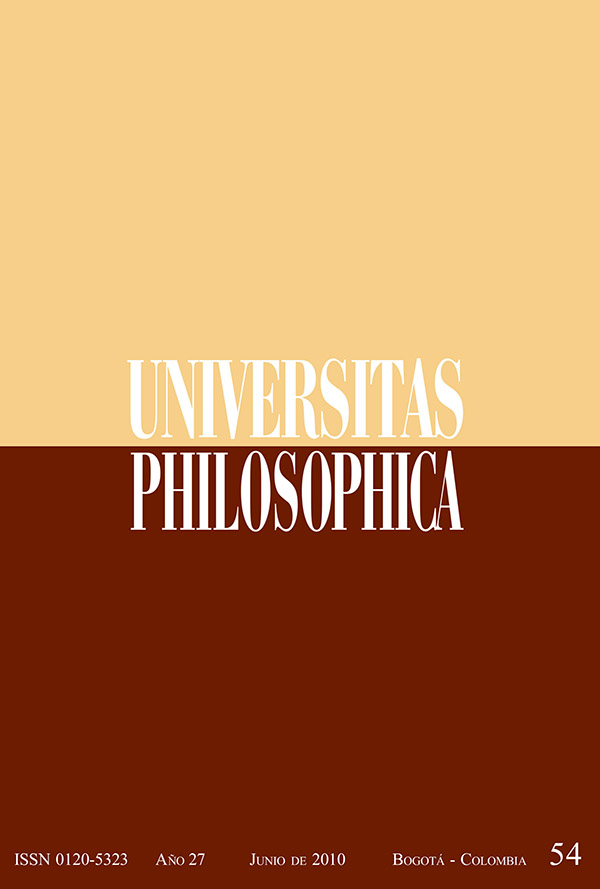Resumo
La supuesta incompatibilidad entre el Principio de contexto (PCtxt) y el Principio de composicionalidad (PCmp) sólo surge cuando tales principios se interpretan como afirmaciones acerca de la constitución dinámica del significado. Para ilustrar esta tesis presentaré el tratamiento que el PCtxt recibe en los Grundlagen de Frege, mostraré cierta inestabilidad a la que da lugar dicho tratamiento y argumentaré que Wittgenstein aporta en el Tractatus los elementos necesarios para resolver ese desequilibrio y la disyuntiva a la que parece abocarnos. El error radica en formular la restricción composicional y la contextual como principios separados y por lo tanto susceptibles de colisión. Mi tesis es que, en el estadio de desarrollo filosófico del Tractatus, Wittgenstein halló un modo de resolver y encajar las tensiones entre el PCtxt y el PCmp que afloran en la filosofía del lenguaje de Frege y han sido detectadas por comentaristas posteriores.Esta revista científica se encuentra registrada bajo la licencia Creative Commons Reconocimiento 4.0 Internacional. Por lo tanto, esta obra se puede reproducir, distribuir y comunicar públicamente en formato digital, siempre que se reconozca el nombre de los autores y a la Pontificia Universidad Javeriana. Se permite citar, adaptar, transformar, autoarchivar, republicar y crear a partir del material, para cualquier finalidad (incluso comercial), siempre que se reconozca adecuadamente la autoría, se proporcione un enlace a la obra original y se indique si se han realizado cambios. La Pontificia Universidad Javeriana no retiene los derechos sobre las obras publicadas y los contenidos son responsabilidad exclusiva de los autores, quienes conservan sus derechos morales, intelectuales, de privacidad y publicidad.
El aval sobre la intervención de la obra (revisión, corrección de estilo, traducción, diagramación) y su posterior divulgación se otorga mediante una licencia de uso y no a través de una cesión de derechos, lo que representa que la revista y la Pontificia Universidad Javeriana se eximen de cualquier responsabilidad que se pueda derivar de una mala práctica ética por parte de los autores. En consecuencia de la protección brindada por la licencia de uso, la revista no se encuentra en la obligación de publicar retractaciones o modificar la información ya publicada, a no ser que la errata surja del proceso de gestión editorial. La publicación de contenidos en esta revista no representa regalías para los contribuyentes.


